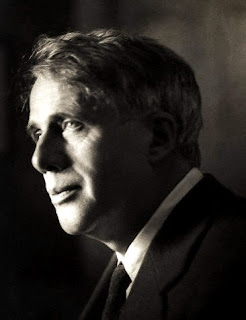Having tackled the "immense, magnificent, terrible"(Bishop) Wasteland, by Eliot, I can say that I agree. It is like looking under a microscope to see something different every time I read it. A prevailant them throughout appears to be death, and life that cycles through death. Symbols of life are breeding lilacs(known for passion, beauty, deise, promise and life), summer, rain, rivers, lakes(all water representative of life) Where he writes," I will show you fear in a handful of dust, he is stating that life is fleeting, he writes again and again of life coming out of death. He writes of the warning of fleeting lives as he writes," Fresh blows the wind to the homeland; my Irish child, why are you waiting?He gives another symbol of life, the hyacinth girl. The line below says that 'waste and empty is the sea' Since the water represents life I am thinking that he is saying that life is empty when caught up in the past.
In the next portion, he is speaking in the voice of Marie, the Lithuanian that earlier denied her Russian ties, as was common at the time, Marie is talking about her experience with the claivoyant who read tarot cards to her. The clairvoyant seems to elude to marie's belief that modern life is fleeting and modern life is horrible, with their crowds, they are likened to walking zombies in a modern hell. She is telling Marie in a sense that she does not see regeneration for her(saying that she does not see the hanged man for her, representative of Jesus Christ. She says to fear death by water, possibly referring to baptism, and spiritual death, so that new life can come?
Again comes the words,"unreal city". This is a shadow of false illusions that the speaker believes modernism givesagain the talk of covering as a fog in the winter. Right after, mention of modern London and the mention of the death of so many again eluding to a modern hell. The mention of the dead sound at nine when the church rang the bell made me think of the person working 9-5, and the death that can come when one gets caught up in the mindset that work is all that matters. I began to get increasingly lost in much of the rest. The extravagance mentioned in the next part, I thought perhaps was representative of life again, The life seems to melt into greed, which then is representative of the modern life which is likened to death. the mention of "we are rats in an alley where the dead men lost their bones." As if to say, 'we are alive, but might as well be dead".
There were more references to water, and embracing life. Wow, this has provoked much thought, and make me think about embracing life because it is fleeting.




